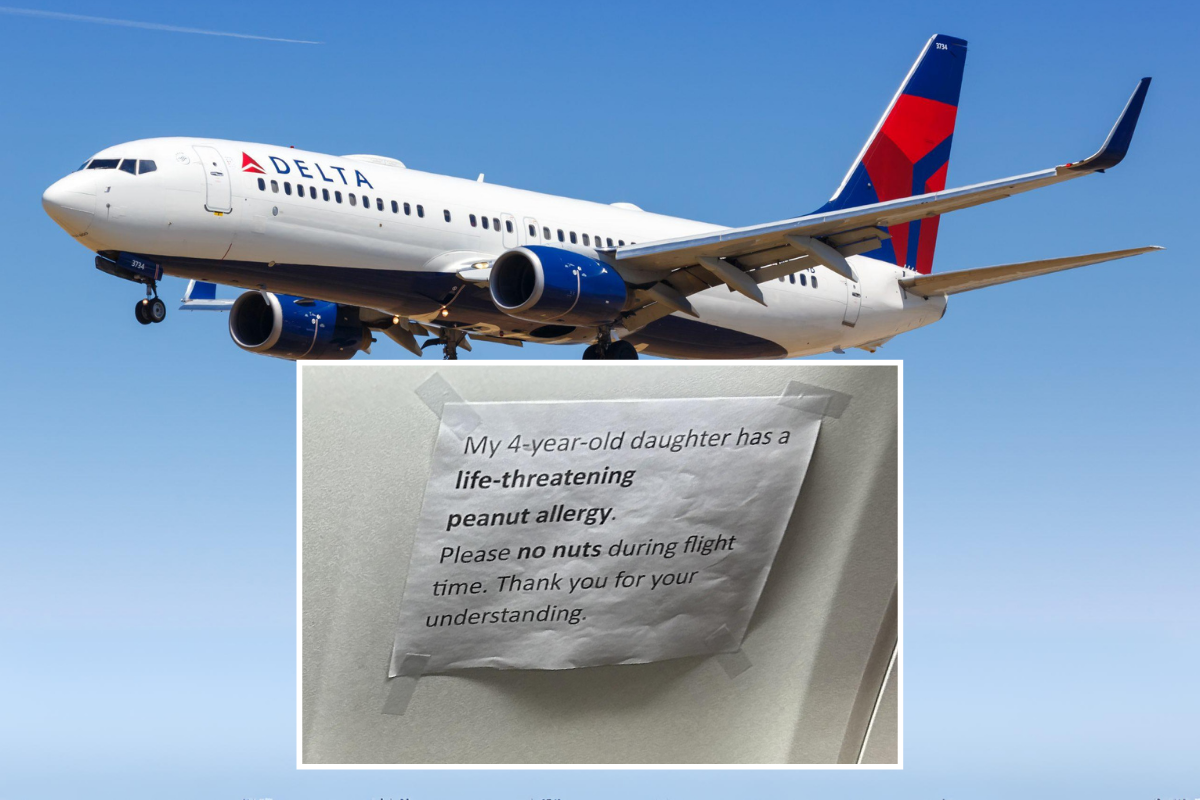
The authors of a new scientific study that looked at the risk posed to nut allergy sufferers when flying have called on airlines to stop making ‘nut ban’ announcements in an attempt to appease passengers with severe airborne allergies.
The study by Dr. Paul Turner and Dr. Nigel Dowdall in the Archives of Disease in Childhood concluded that there was no evidence to support the theory that airborne transmission of nut allergens is a risk onboard airplanes and that making ‘nut ban’ announcements could instead install a false sense of security.
Policies over how airlines treat passengers with severe nut allergies can vary massively from one carrier to the next, and this has resulted in a growing list of horror stories and increased anxiety amongst severe allergy sufferers.
In a global study of nearly 5,000 severe allergy sufferers, over one-third reported unprofessional or insensitive behavior by airport and airline staff, and it’s increasingly common to hear first-hand accounts of passengers being kicked off flights because they reported their allergy to airline staffers.
In some cases, tensions rise, and tempers flare when airline staff refuse to make ‘nut ban’ announcements or refuse to stop serving nut-based snacks onboard.
Anxious allergy sufferers should, however, be comforted by the fact that the authors of this latest study have concluded that food-induced allergic reactions are around 10 to 100 times less common during flights than on the ground.
“There is a common perception that reactions due to aerosolized peanut are common, particularly on commercial aircraft; however, evidence suggests such instances are rare,” Dr. Turner and Dr. Dowdall write.
The study points to the powerful HEPA air filtration systems used on most commercial aircraft that have a typical particle-removing efficiency of 99·97%. Cabin air is typically refreshed every 3 to 4 minutes – which is a lot quicker than the 10 minute refresh rate in most hospital rooms.
The biggest risk to allergy sufferers isn’t airborne transmissions, the authors argue, but instead, residue left on plane seats and tray tables from people on previous flights. As a result, the authors believe that the most effective way to protect allergy sufferers is to give them pre-boarding clearance so that they have time to effectively wipe down their seat area.
The authors acknowledge that airborne transmission risk could be lower on a plane because allergy sufferers are already taking preventative steps, like wearing a face mask, and the evidence on the effectiveness of nut-free buffer zones remains unclear.
Even though this latest study suggests allergy sufferers are reasonably safe onboard flights, the authors suggest passengers with severe allergies carry at least two adrenaline autoinjectors, like an Epipen, on them at all times.
Related
Mateusz Maszczynski honed his skills as an international flight attendant at the most prominent airline in the Middle East and has been flying ever since... most recently for a well known European airline. Matt is passionate about the aviation industry and has become an expert in passenger experience and human-centric stories. Always keeping an ear close to the ground, Matt's industry insights, analysis and news coverage is frequently relied upon by some of the biggest names in journalism.








I agree but then I don’t have a nut allergy. The air aboard modern aircraft, as the author says, is completely refreshed much faster than many hospitals. Modern aircraft have massive HEPA filters that are inspected and replaced on a regular basis. While I sympathize with people who have potentially life threatening allergies, that should be taken into account when they travel. Are they going to demand that the airline lounges refrain from serving the allergens? How about the Uber/Lyft, the “plane trains” at the airport, the gate area, the restaurants in and around the airports? Must they also comply? Uh…NO!
By the way, you misspelled “Shouldn’t”!